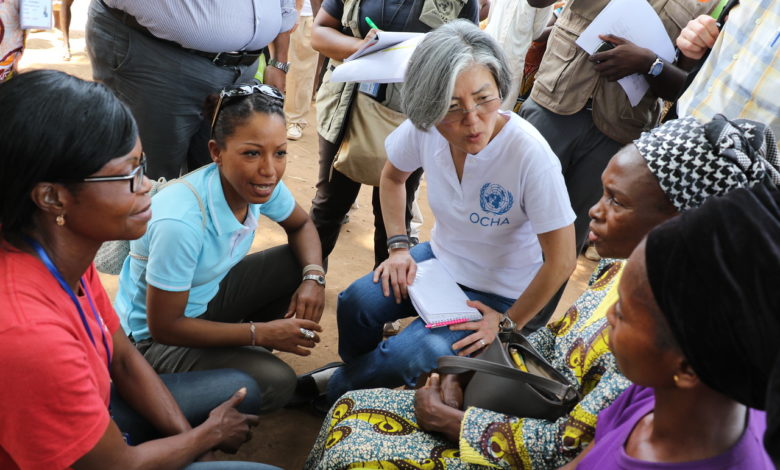Increasing Armed Violence In Central African Republic Cutting Off Humanitarian Assistance – OCHA
Access to displaced persons by aid workers is increasingly difficult in the Central African Republic as conflict continues in the country.

The UN Office for the Coordination of Humanitarian Affairs (OCHA) says the growing armed violence in the past week in the Central African Republic has prevented any assistance to those affected by the violence.
Denise Brown, the Humanitarian Coordinator for the Central African Republic (CAR), said in a statement on Tuesday, July 6, 2021 that the armed violence compounded by serious violations of international human rights law, has left at least two civilians dead, caused the displacement of thousands of already displaced Central Africans, injured a humanitarian worker and led to a significant reduction in humanitarian assistance in Alindao in the south of the country.
“[For] one week, growing insecurity has prevented any assistance to those affected by this upsurge in violence.”
“For the past week, the lives of thousands of civilians have been in imminent danger due to a series of armed clashes in Alindao where some groups of the population have been particularly targeted.”
Brown expressed concerns that the civilians are now cut off from their small sources of income, adding that “food is increasingly scarce. They live in fear and are traumatised.”
She disclosed that significant population movements have been recorded towards the District Hospital, existing IDP sites, MINUSCA bases and surrounding villages.
“Due to the persistent insecurity, assistance in town and on the axes has been significantly reduced with the exception of health services and provision of safe drinking water.”
According to her, burning of houses and looting of property of a population already battered by years of conflict were also recorded, as well as attempted break-ins to humanitarian premises.
“All parties to the conflict must stop all violence against civilians, civilian infrastructure, humanitarian actors and respect international humanitarian law,” Brown said.
Every month, humanitarian actors provide multi-sectoral assistance to thousands of vulnerable people in the Basse-Kotto Prefecture.
Eighty-six aid workers have been relocated thus affecting this capacity. Food insecurity in Alindao is in the severe phase.
More than 266,000 people are in need of humanitarian assistance in the region, making Basse-Kotto the fourth prefecture with the highest number of people in need in 2021.
Following the surge in violence since mid-Dec. 2020, 727,000 people are currently displaced in the country, a level never reached since 2014.
This violence has exponentially increased humanitarian needs which already far exceeded existing capacities. 2.8 million people – 57 per cent of the population – are in need of humanitarian assistance and protection. 1.9 million of them would not survive without the required assistance.
Support Our Journalism
There are millions of ordinary people affected by conflict in Africa whose stories are missing in the mainstream media. HumAngle is determined to tell those challenging and under-reported stories, hoping that the people impacted by these conflicts will find the safety and security they deserve.
To ensure that we continue to provide public service coverage, we have a small favour to ask you. We want you to be part of our journalistic endeavour by contributing a token to us.
Your donation will further promote a robust, free, and independent media.
Donate HereStay Closer To The Stories That Matter




